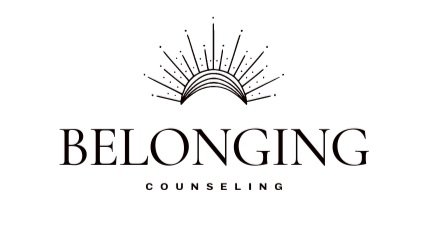
Is therapy right for you?
If you are wondering what happens in therapy and want to know what to expect…
Therapy can be so many things, but the simplest and most comprehensive explanation is: therapy is meeting yourself.

The purpose of therapy can change and move with you, as your goals and needs change. In today’s world, therapy can provide an intentional pause – a time to self-reflect, check in, process, problem-solve, create more balance in life, find ways to be a little bit kinder to yourself, be a little more present in your experiences. Therapy meets you where you are and asks “what do you need right now?”
Therapy is a process you commit to, and therefore it becomes what you make it. It is so often stigmatized, but it is an act of self-love – it is you showing up for you.
The beating heart of therapy is the therapeutic relationship, the human connection – and it is one of the greatest honors to walk with someone on their journey.
“Growing up doesn’t really have much to do with getting older. Growing up is a continuous cycle of consciously developing a deeper awareness and understanding of myself and then growing into and acting from that space.” - Tutu Mora
What is eclectic therapy?
I utilize an eclectic approach to therapy, meaning that I integrate multiple theoretical orientations and evidence-based techniques into my practice, which enables me to utilize the most effective methods to address your individual needs. Below I provide brief descriptions of the theoretical approaches that guide my practice:
Theoretical Specializations
-

Person-Centered Therapy
Person-centered therapy, sometimes referred to as client-centered therapy, is a humanistic approach that allows clients to have greater control over the direction of the conversation, so that they feel a greater sense of agency in finding their own solutions. The therapist serves as an empathetic and nonjudgmental facilitator, actively listening and validating the client’s experience. The non-directive therapist provides support and encouragement as the client leads in their own journey of self-discovery.
-

Existential Therapy
Existential therapy addresses essential life concepts such as death, meaning, freedom, isolation – and argues that mental health issues develop when individuals avoid rather than face these core issues. Psychological distress occurs when individuals are unable to make authentic life choices. Existential therapy focuses on exploring the concepts of free will, self-determination, and search for meaning and purpose.
-

Psychodynamic Therapy
Psychodynamic (also called psychoanalytic) theory argues that early childhood connections significantly impact an individual’s personality, behavior, and beliefs. The focus of psychoanalytic therapy is to bring awareness to unconscious relationship dynamics through exploring past and current relationship to identify recurring patterns in their relationships, which may involve unhealthy attachment patterns, conflict, and defense mechanisms.
-

Cognitive Behavioral Therapy
Cognitive behavioral therapy (CBT) argues that it is our interpretation of events that causes suffering, and maladaptive patterns of thinking, also known as cognitive distortions. CBT helps clients identify and challenge these negative automatic thoughts and irrational beliefs, and build more rational, flexible ways of seeing themselves and the world.


